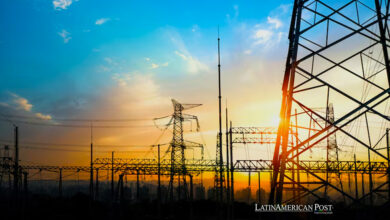What will happen with Algeria?
Listen this article
More than three weeks of demonstrations, a power void, a delay of general elections, among others, are part of the Magrebian country's political state
Bouteflika: a bittersweet announcement
The current president of Algeria, Abdelaziz Bouteflika, had announced his candidacy for a fifth presidential term. However, as France 24 pointed out, after three weeks of protests, the president took a step back.
The same French media highlighted the president's words: "There will not be a fifth mandate and that was never a thought for him (…) My state of health and my age only allow me as a last duty to our people to contribute to the foundations of a new Republic".
This pronouncement did not come alone. As El Pais argued, the Algerian government postponed the elections of April 18 until new order, and, instead, an inclusive and independent National Conference was convened, this means, a sort of constituent to have a political transit.
#Argelia #Buteflika, el último presidente de la república muerta | Ideas | EL PAÍS https://t.co/LazF5VwhnC
— CPLATAM (@CPLATAM) March 12, 2019
What do the Algerian people think?
Many of the protesters have felt these two political movements as a way to discourage demonstrations and gain time to position another president at the whim of political elites, since a constituent could take more than a year.
Contrary to what was thought, these statements only brought more protests in the North African country. For example, the newspaper La Nación recorded the protest of more than a thousand lawyers at the head of the National Council of Algeria due to the lack of political clarity, and the inefficiency of the body that supposedly ensures compliance with the constitution.
Allies of the Bouteflika government
In the government cabinet, despite having been in power for several decades, none of its representatives embodies a politically strong figure that enjoys popularity among its citizens.
In addition, as La Nación explained, among the allies of the aforementioned president "there are no important proposals that unify them, between them and with the people." For this reason, a legitimate successor on the part of the government is unthinkable.
For example, the last government movement that has unleashed the fury of the protesters was the appointment of Ramtane Lamamra as Prime Minister. According to France 24, this politician is one of the most fervent followers of Bouteflika, and is in charge of this position after Nouredine Bedui resigned his post.
In any case, neither of these two politicians enjoys popularity among the people.
Read also: Algeria: is there a power void?
Is there a viable candidate?
At the moment, apparently not. A few days ago, Rachid Nekkaz, a Franco-Algerian billionaire who enjoys great popularity in social networks, was mentioned as a possible candidate.
According to El País, he managed to get more than 60,000 signatures to be able to run for the April elections. However, the government cabinet has one point in its favor: according to the constitution, any candidate for the presidency must have resided at least 10 years in Algeria, a requirement that Rachid Nekkaz does not fulfill.
However, as this same Iberian newspaper warned, Nekkaz was fully aware of his limitation, which is why he inscribed his cousin, of the same name, as a candidate for the presidency. Then, his role would be as a campaign candidate. This move was not applauded among his followers.
Which is the most viable way?
Thus, there is no clear candidate to face Bouteflika, not even in his government supporters.
President Bouteflika is seen as an "ancient gargoyle" in power, living off his old glories like the independence against France, or fighting against radical Islamic groups in Algeria, as several experts assured to the newspaper La Nación.
The opposition has more than 20 parties and, among them, a true political figure does not stand out. The only viable candidate is a Franco-Algerian who could not stand for election because of his constant trips to France.
Therefore, the political landscape for Algeria is open and uncertain. The protests will continue until time weaken them; the opposition and the government will face an eventual constituent, which seems more like an arrangement between Bouteflika and his supporters than a genuine political exit from power.
LatinAmerican Post | Miguel Díaz
Translated from "¿Cuál será el futuró de Argelia? "






